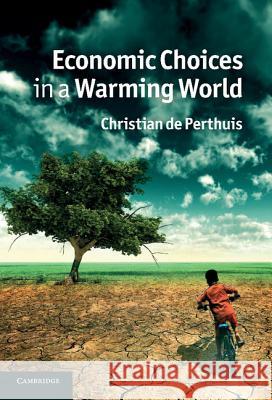Economic Choices in a Warming World » książka
Economic Choices in a Warming World
ISBN-13: 9781107002562 / Angielski / Twarda / 2011 / 262 str.
Since the publication of the Stern Review, economists have started to ask more normative questions about climate change. Should we act now or tomorrow? What is the best theoretical carbon price to reach long-term abatement targets? How do we discount the long-term costs and benefits of climate change? This provocative book argues that these are the wrong sorts of questions to ask because they don't take into account the policies that have already been implemented. Instead, it urges us to concentrate on existing policies and tools by showing how the development of carbon markets could dramatically reduce world greenhouse gas (GHG) emissions, triggering policies to build a new low-carbon energy system while restructuring the way agriculture interacts with forests. This provides an innovative new perspective on how a post-Kyoto international climate regime could emerge from agreements between the main GHG emitters capping their emissions and building an international carbon market.











